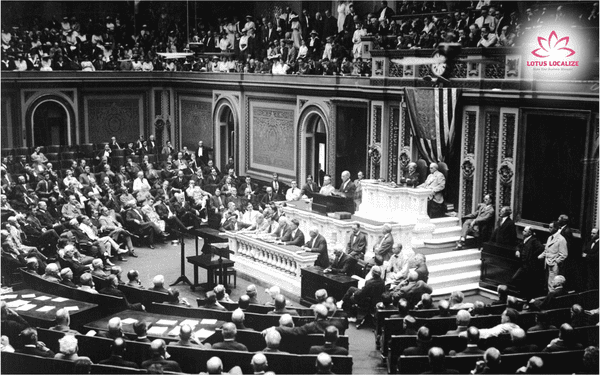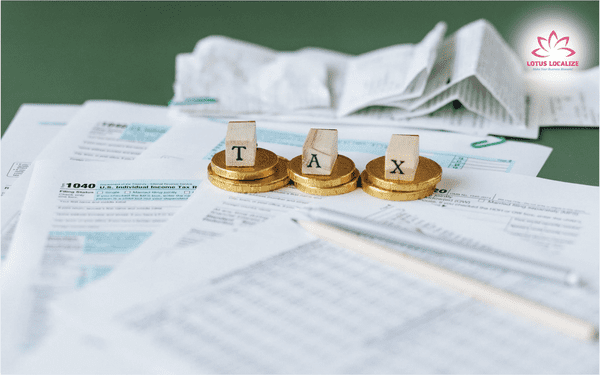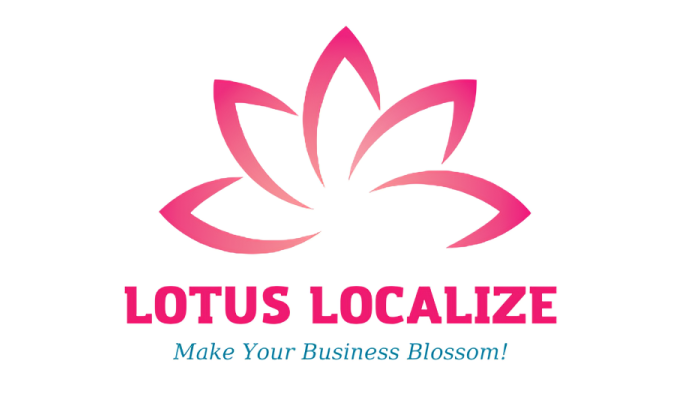
The vital importance of government document translation in global relations
Government translation serves as the foundation for clear, accurate communication between nations. Whether dealing with diplomatic relations, trade agreements, or international law, the precision of translated government documents can make or break global partnerships. Let’s explore the significance of these translations, the types of documents involved, the common challenges, and how to select the right translation provider for government-related needs.
Why is government document translation essential?
Effective government document translation ensures that complex policies, legal texts, and international agreements are understood uniformly across borders. In global diplomacy, even a minor misunderstanding can lead to conflicts, strained relations, or legal complications.
- Maintaining global peace: Diplomatic discussions, treaties, and negotiations require flawless translation to avoid misinterpretations that could escalate tensions. These documents carry significant weight, and even a slight error can have major repercussions.

- Ensuring legal accuracy: Translations of legal documents, such as trade agreements and international regulations, must be handled with care to prevent legal disputes. Accuracy ensures that all involved parties understand their responsibilities and obligations clearly, reducing the likelihood of misunderstandings.
In the broader scope of international relations, government translation also plays a vital role in fostering trust and transparency between nations.
Read more: Cracking the code: E-commerce localization for global market success
What types of government documents require translation?
Government entities handle various types of documents, each demanding a high level of precision and subject-matter expertise. The complexity and sensitivity of these documents make accurate translation crucial for smooth international operations. Below are the key types of government documents that require translation:
- Diplomatic papers: Diplomatic documents, including treaties, memoranda of understanding, and bilateral agreements, are the foundation of international relations. Translating these documents requires not only language proficiency but also a deep understanding of diplomacy and cultural nuances. Any slight misinterpretation can lead to misaligned negotiations, causing diplomatic strain between countries.

- Legal and regulatory documents: Legal documents like regulations, trade agreements, and government contracts must be translated with extreme accuracy. Legal terms often have no direct equivalent in other languages, so translators must ensure that the translated text maintains the original document’s legal integrity. Missteps in legal translation can result in lawsuits, financial penalties, or non-compliance with international laws.
- Immigration and nationality papers: Immigration documents, such as residency permits, visa applications, and citizenship paperwork, require careful translation to avoid delays or rejections. Mistakes in these documents can have life-changing consequences for individuals. Given the complexity of immigration laws, translators must navigate both legal and bureaucratic language with precision and empathy.
Each type of document is unique, containing specialized terminologies and contexts that demand expertise in both the source and target languages. Governments must work with translators who understand these complexities to ensure that the meaning of each document is preserved.
Key challenges in government translation
Translating government documents is no simple task. It involves more than converting words from one language to another—it requires navigating cultural, legal, and political contexts to ensure that every word conveys the intended meaning. Here are some of the common challenges faced in government translation:
- Cultural and legal nuances: Governments often use terminologies and references deeply rooted in their legal systems and cultural practices. These nuances are challenging to translate because they may not have direct equivalents in other languages. Translators must go beyond word-for-word translation and interpret the legal intent and cultural context behind the language to avoid miscommunication.

- Confidentiality and security concerns: Many government documents contain sensitive information related to national security, defense, or foreign policy. Protecting this information during the translation process is paramount. The translation provider must have strict confidentiality protocols and secure data handling procedures to prevent leaks or unauthorized access.
- Time pressure: Governments often operate on tight schedules, with urgent matters requiring quick turnaround times. Translators must balance speed with accuracy, ensuring that translations are precise while meeting deadlines. In high-stakes situations, such as during international negotiations, delays or inaccuracies can have serious political or economic consequences.
Additionally, legal and political landscapes are constantly evolving, which adds complexity to the translation process. Terminology that was relevant yesterday might no longer be applicable today. Translators must stay up-to-date on these changes to ensure their translations reflect current laws and policies.
Read more: The impact of anime translation on broadening audience engagement
How to select the best government translation provider
Choosing the right translation provider for government documents is crucial to ensuring that translations are accurate, secure, and delivered on time. Given the high stakes involved, a government translation provider must meet specific criteria to guarantee success. Here are the essential factors to consider:
- Specialized expertise: The ideal provider should have extensive experience in translating government-related materials. This includes knowledge of the specific languages involved and familiarity with the subject matter, whether it’s legal, diplomatic, or technical. A provider with specialized expertise ensures that the translation is not just linguistically accurate but also contextually appropriate.

- Confidentiality protocols: Given the sensitive nature of government documents, it is critical that the provider adheres to strict confidentiality guidelines. Look for a provider that has robust security measures, such as encrypted file transfers and secure data storage, as well as signed non-disclosure agreements (NDAs) to protect sensitive information from unauthorized access.
- Track record and reputation: A provider with a proven history of handling government translation projects will have the experience necessary to manage complex documents efficiently. Research their past work and client feedback to gauge their reliability. A well-established reputation in the field adds an extra layer of trust.
Additionally, it is essential that the provider utilizes advanced translation technology, such as translation memory and quality control tools, to streamline the process while maintaining precision. By combining expertise with technology, the provider can offer fast, accurate translations without sacrificing quality or security.
Choosing the right provider can make all the difference in ensuring that your government documents are translated flawlessly and securely, allowing your international affairs to proceed smoothly and without costly errors.
All in all, In the world of international affairs, government document translation is far more than just a linguistic task—it’s a critical component of diplomacy, security, and global cooperation. The accurate translation of treaties, legal documents, and policies ensures that nations can communicate effectively, avoiding misunderstandings that could lead to costly mistakes or conflicts. By recognizing the challenges inherent in government translation and choosing the right provider with specialized expertise, secure processes, and a proven track record, governments can ensure that their messages are conveyed clearly and responsibly. This helps foster trust, maintain diplomatic ties, and contribute to a stable and cooperative global landscape.
Ready to elevate your international communication strategy? Reach out to Lotus Localize today to explore how our transcreation services, translation services for many industries: life science translation, financial translation, manufacturing translation, education translation,… can help you achieve your global engagement goals. Let’s work together to make your content resonate worldwide!
Contact us today at our hotline or Whatsapp: + 84 866 224 968 or visit the websites: lotus-localize.com to learn more about how we can support your translation needs.
QUALITY PROMISE
Lotus Localize offers consistent, high-quality service delivery in all customer engagements. Our in-house translators and staff adhere to well-established business processes, allowing us to communicate properly, deliver on time, and surpass client expectations.












